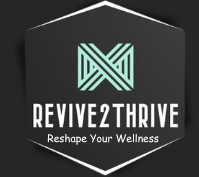What Is The Right Way To Tackle Getting Rid of Guilt?
We’re not supposed to just get rid of emotions as they contain valuable information that guides and grows us if approached correctly and without resistance or judgment. This goes for any emotion. Be it shame, fear, anxiety, apathy, anger, joy, courage, sadness, grief and guilt. Here’s how you approach guilt the healthy way:
Understand the Purpose
The whole purpose of guilt is to make us aware when we are behaving and acting out of character, when we are losing or compromising our integrity and when we did something wrong or hurt someone else. So, when we feel guilty, it’s a sign that our moral compass is still working.
Discover and Reflect on Guilt Nature
Dive deep into the heart of guilt and discover whether it is a friend or foe in your life.
Explore the difference between rational and irrational guilt, and learn how to distinguish your emotions. #Discover how to untangle the complexities of guilt and understand the underlying reasons for your feelings.
Rational Guilt
It’s a feeling of remorse and regret that we experience when we really screwed up or when, whatever we said or did directly caused harm on another. I.e. when you cheated on someone or physically hurt them. This is the type of guilt we are supposed to act on through apologizing, improving our #behaviour and committing to growth.
Those feelings of remorse and regret are supposed to hold you accountable and to show you in what areas you’re not acting in accordance to who you think you are and to who you want to be. When you act on this guilt, it greatly helps to forgive yourself and to let it go.
Irrational Guilt
Irrational #guilt is based on low #self-esteem and experienced when you take responsibility for things you didn’t do and aren’t responsible for at all.
I.e. when you feel guilty for ending a relationship that was toxic to both you and the other. Why isn’t it productive to feel guilty for ending it? Because you’ve been real and did what you thought was best for you and them.
Never apologize or feel guilty for being real.
This type of guilt has to be approached with a focus on building stronger boundaries. On reminding yourself what you can and cannot control, what you are responsible for and what you aren’t responsible for.
Forgive Yourself

It can be very difficult to forgive yourself when you royally screwed up and know for a fact that whatever suffering someone else experiences is the by product and consequence of your words, actions, decisions and behaviours. However, as long as you are committed to personal growth, genuinely apologize and improve your behavior, it’s safe to forgive yourself for and grow through past mistakes since you hold yourself accountable and fully understand why the thing you said or did was wrong.
Call it guilt, fear, anger, or hatred – essentially, it means your thoughts and emotions are working against you – Sadhguru
As for the other person that got hurt, you cannot control if and when they accept your apology.
They may never forgive you or they may find the space in their heart to let go of the past and move on. However, if they do the latter, it doesn’t mean they will take you back.
All it means is that they freed themselves from the resentment that kept poisoning them.
#Practice mindfulness techniques to help you detach from your thoughts and emotions.
By Guest Author:


